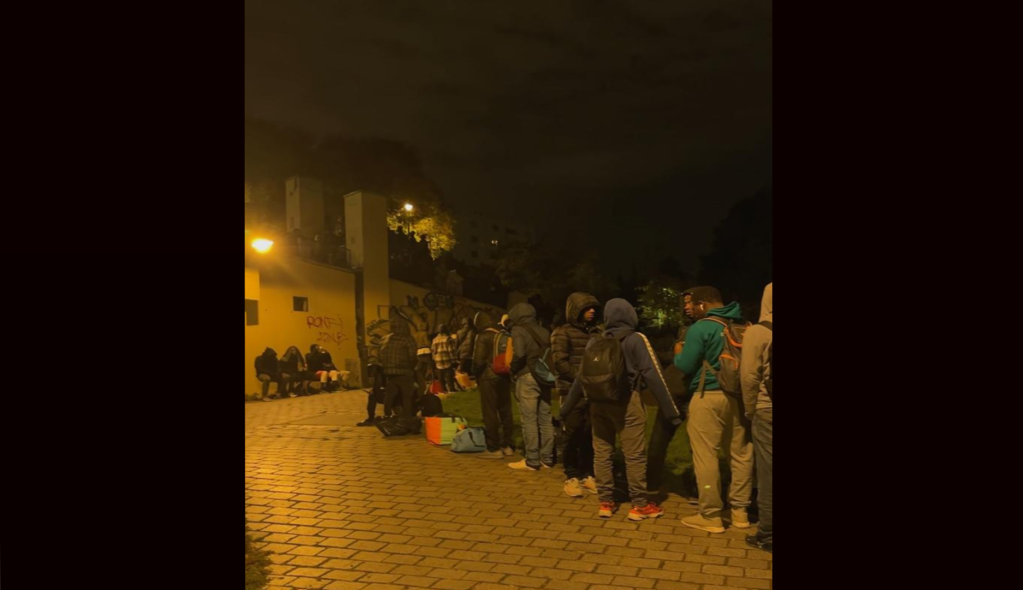The European Court of Human Rights (ECHR) condemned France for failing to protect an unaccompanied minor. The French authorities initially contested the Guinean’s age, before concluding that the applicant was in fact a minor a year later. In the interim, the young man was left on the streets to fend for himself.
The European Court of Human Rights (ECHR) condemned France on January 16 for refusing care to an unaccompanied minor. The Limoges Youth Court first contested the young Guinean’s age, before later concluding that the youth was in fact a minor.
The young migrant was therefore deprived of care during this period, which lasted nearly a year.
Councils in French administrative regions, known as departments (Conseil Départemental - CD) are responsible for establishing whether a migrant is a minor. The child welfare service (ASE) is responsible for organizing emergency temporary reception, while the age of the young person is being determined.
The principal facts are as follows: on his arrival in France, the Guinean national stated he was an unaccompanied minor. He was temporarily taken into care by the child welfare services. After the CD declared the Guinean was in fact an adult, he was asked to leave the hotel in which he had been living on March 9, 2020. The decision was justified by the absence of a civil-status document during the age-assessment interview, as well as the results of bone and dental examinations.
The accuracy of bone tests to establish a person's age has been contested for years, particularly by the Defender of Rights (DDD) [an administrative authority enshrined by the Constitution of France, editor’s note]. The scientific community itself has not agreed on the accuracy of these tests, instead claiming that bone maturity can vary depending on the child’s gender and nutritional state.
'Departmental services failed in their obligation'
The Limoges Court of Appeal overturned the CD's judgement on January 21, 2021, finding that the Guinean was in fact a minor.
The legal process took a year, and in the meantime, the young migrant had not received the care provided for under French child-protection laws. He "found himself with no resources, accommodation, contacts or food and had to fend for himself," according to the press release issued by the ECHR.

As soon as he was evicted from the hotel where he was staying by the ASE in March 2020, the teenager was "left to his own devices" in Limoges amid the COVID-19 health crisis, according to the Court's ruling. "He wandered the streets, in the parks, and through the train station."
The young teenager eventually found shelter in a hotel on the outskirts of the city via the 115 emergency shelter number system, beginning on April 1, 2020. "Food vouchers were allegedly distributed to him but could only have been used in a restaurant located about ten kilometers away, at a time when travel was not permitted due to the health crisis," according to the ECHR.
He appealed to have his age recognized, but in vain. He left his emergency accommodation at the end of June 2020, and "moved from squat to squat, in difficult and painful conditions," from Limoges to Lyon.
This continued until the January 2021 judgement, after which he finally had a roof over his head and the energy to begin a work-study program.
The ECHR also noted the "incomplete and imprecise information" provided to the applicant while his minor status was in dispute, depriving him of "adequate procedural safeguards." It added that the authorities "had not acted with reasonable diligence and had not complied with their positive obligation to ensure the applicant's right to respect for his private life."
Read AlsoFrance: Can unaccompanied minors benefit from the 'young adult' contract?
A life of wandering
The story of this young Guinean is not an isolated case. Many minors in Paris, Marseille, Lyon and other French cities, seek refuge in makeshift shelters and squats. Some 300 young migrants took over the Parisian cultural venue La Gaîté Lyrique over the past month. All are part of the Youth Collective from Belleville Park (Collectif des Jeunes du Parc de Belleville), which also occupied the Maison des Métallos for several weeks just ahead of summer 2024.
The young migrants were then housed in gymnasiums throughout the city during the Olympic and Paralympic Games, before returning to the streets.
One of them, David, a 16-year-old Guinean that InfoMigrants met during a protest, said he had spent months without a roof over his head. "It's really a struggle. Finding food, sleeping in a dry place... It's very hard," the young man confessed."The police end up coming to any little place we find to chase us away. All we ask is to be treated with dignity, to have housing, to have access to schooling, to be able to work and live..."
